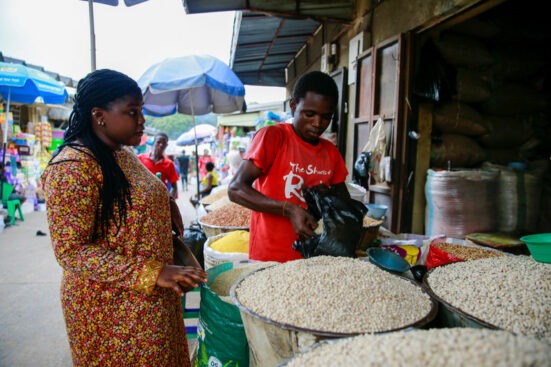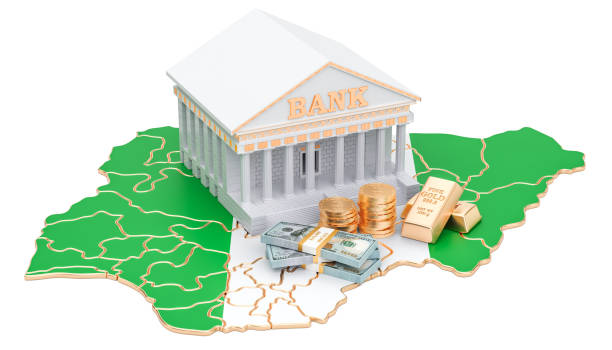Economic Hardship Worsens
Economic hardship in Nigeria is intensifying, with rising food prices exacerbating poverty levels. According to a fresh report by the Abuja Chamber of Commerce and Industry (ACCI), the persistent hike in food prices severely impacts small-scale businesses. It renders basic meals unaffordable for many citizens.
ACCI President, Emeka Obegolu, states, “The surge in food prices of essential food items such as rice, beans, cassava flour, tomatoes, pepper, and onions has aggravated the plight of the average citizen. Basic meals are becoming increasingly unaffordable, and the government must intervene before the country implodes.”
Join our WhatsApp ChannelRising Food Prices
For too long, Nigerians have been tormented by astronomical increases in the prices of basic foods and services in the marketplace.
The steep food prices have battered the purchasing power of citizens, leading to an increase in poverty and an unpalatable cost of living. Food, a primary resource for human survival, has seen inflation rates that have decimated low wages.
The National Bureau of Statistics revealed that food inflation rose to 40.66 per cent in May 2024, an increase from 25.25 percent in June 2023.
The World Bank reported that Nigeria’s poverty rate hit 38.9 percent in 2023, the second highest in the world behind India. A 2022 survey by the NBS said 133 million Nigerians live in multidimensional poverty.
READ ALSO: Food Crisis In Nigeria: Is Technology The Answer Or Another Government Gimmick?
Food Insecurity
The country remains food insecure. UNICEF stated that 25 million Nigerians are at high risk of hunger, and it is projected that 31.5 million citizens may face acute hunger between May and August 2024.
The 2023 Global Hunger Index rated Nigeria’s hunger level as “serious,” ranking it 109 out of 125 countries with a score of 28.3 percent.
Government Interventions
In recognition of the hardship brought by hyperinflation, the Federal Government released 42,000 metric tonnes of corn, sorghum, and millet to alleviate the suffering of vulnerable households.
In Lagos, the state government opened 42 hubs to sell food at subsidised rates on Sundays. While these interventions help, they only scratch the surface of a much larger problem.
Impact of Insecurity
Without adequate security, Nigeria cannot achieve food sustainability. The country is grappling with banditry, wanton killings, kidnapping, criminality, Islamic terrorism, and violent Fulani herdsmen attacks on farmers.
Consequently, many farmers have abandoned their farmland for fear of bandits and herdsmen, contributing to food shortages nationwide. Insecurity is rampant in Benue, Plateau, Adamawa, Nasarawa, and Borno, often regarded as Nigeria’s food belt.
In Niger, Kaduna, Katsina, and Zamfara, bandits and terrorists demand levies or tributes from farmers before they can plant or harvest their crops.
Voices from the Field
Interviewing several Nigerians reveals the depth of the crisis:
Muhammed Abdullahi, a tomato seller in Lagos, laments, “We can’t go to our farms because of the fear of being attacked. The government says they are doing something, but we don’t see the results. People are hungry, and we have nothing to feed them.”
John Eze, a market trader in Bariga Market, Lagos, shares, “The prices of food have gone up so much that I can hardly make any profit. Customers complain every day. Something has to change, or we won’t survive this year.”
Abisola Abidemi, a mother of four in Lagos, expresses her frustration, “I used to buy a bag of rice for my family, but now I can only afford a few cups. How do we live like this? The government must act quickly to solve these problems.”
Proposed Solutions For Rising Food Prices
The Federal Government must unveil its plans quickly to reduce the number of taxes and improve security measures. To ensure food security, the police and other security agencies must be in the driver’s seat of Nigeria’s security architecture.
Additionally, Nigeria should explore efficient and successful agriculture models within and outside the continent to reduce its high food inflation.
The persistent rise in food prices and insecurity is a pressing issue that requires immediate and effective action.
The voices of Nigerians struggling with these challenges highlight the urgent need for comprehensive government interventions to ensure food security and alleviate the suffering of millions.
Nigeria’s food prices sustainability future depends on a concerted effort to address these critical issues.
Emmanuel Ochayi is a journalist. He is a graduate of the University of Lagos, School of first choice and the nations pride. Emmanuel is keen on exploring writing angles in different areas, including Business, climate change, politics, Education, and others.



















Follow Us